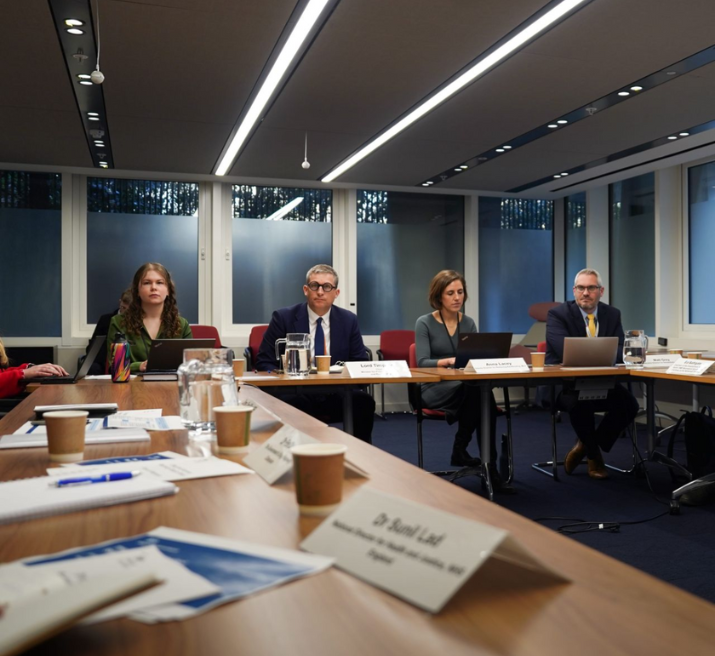NHFT Consultant Counselling Psychologist sits on first Drug and Alcohol Recovery Expert Panel

On 4th March 2025, Dr. Sunil Lad, the National Clinical Director for Health and Justice at NHS England and a Consultant Counselling Psychologist for Specialist and Secured Services at NHFT, participated in the first Drug and Alcohol Recovery Expert Panel (DAREP). As an expert in health and justice, Dr. Lad provided insights into how the panel aims to transform the way we tackle problematic drug and alcohol use in the criminal justice system (CJS) across England and Wales. His involvement also helped ensure that health interventions are considered in the development of broader strategies for tackling drug and alcohol misuse, which is critical in providing a holistic approach to treatment.
The panel also featured a variety of important stakeholders, including the Prisons Minister Lord Timpson, the Drugs Tsar, and health ministers from England and Wales. Substance misuse experts, along with individuals with lived experience, also contributed their perspectives. This multi-agency approach allowed the panel to draw on a broad spectrum of knowledge and experiences to develop more effective, evidence-based solutions.
We asked Dr. Lad a few questions about his experience on the first instalment of the panel.
What is the DAREP? :
The Drug and Alcohol Recovery Expert Panel was established to address the ongoing challenge of substance misuse within the CJS. According to the Ministry of Justice almost half of prisoners have identified drug addictions, and 44% of theft crimes are linked to drugs. The panel's primary aim is to identify key areas where the current approach to drug and alcohol misuse needs improvement, as well as to test whether we are being sufficiently ambitious in tackling these issues. Dr. Lad emphasised that the goal is not only to address the immediate consequences of addiction but to focus on long-term prevention and treatment strategies.
Primary aim of the panel:
DAREP's overall mission is to explore new, innovative approaches to tackle substance misuse and support individuals in overcoming addiction. By bringing together a range of experts, the panel works towards developing strategies that address the underlying social and psychological factors contributing to substance misuse. This ensures that those within the CJS receive the comprehensive support they need to recover and lead healthy, productive lives.
Conclusions:
One of the key takeaways from the panel, as shared by Dr. Lad, was the importance of coming together to look at problem areas and find solutions. By pooling expertise from different sectors, the panel can make meaningful improvements over time that will ultimately benefit those affected by substance misuse in the criminal justice system.
The first meeting of DAREP marks an important step forward in improving the way we address substance misuse in the CJS. Through collaboration and a health-focused approach, the panel aims to create lasting change that supports long-term recovery for individuals struggling with addiction.

